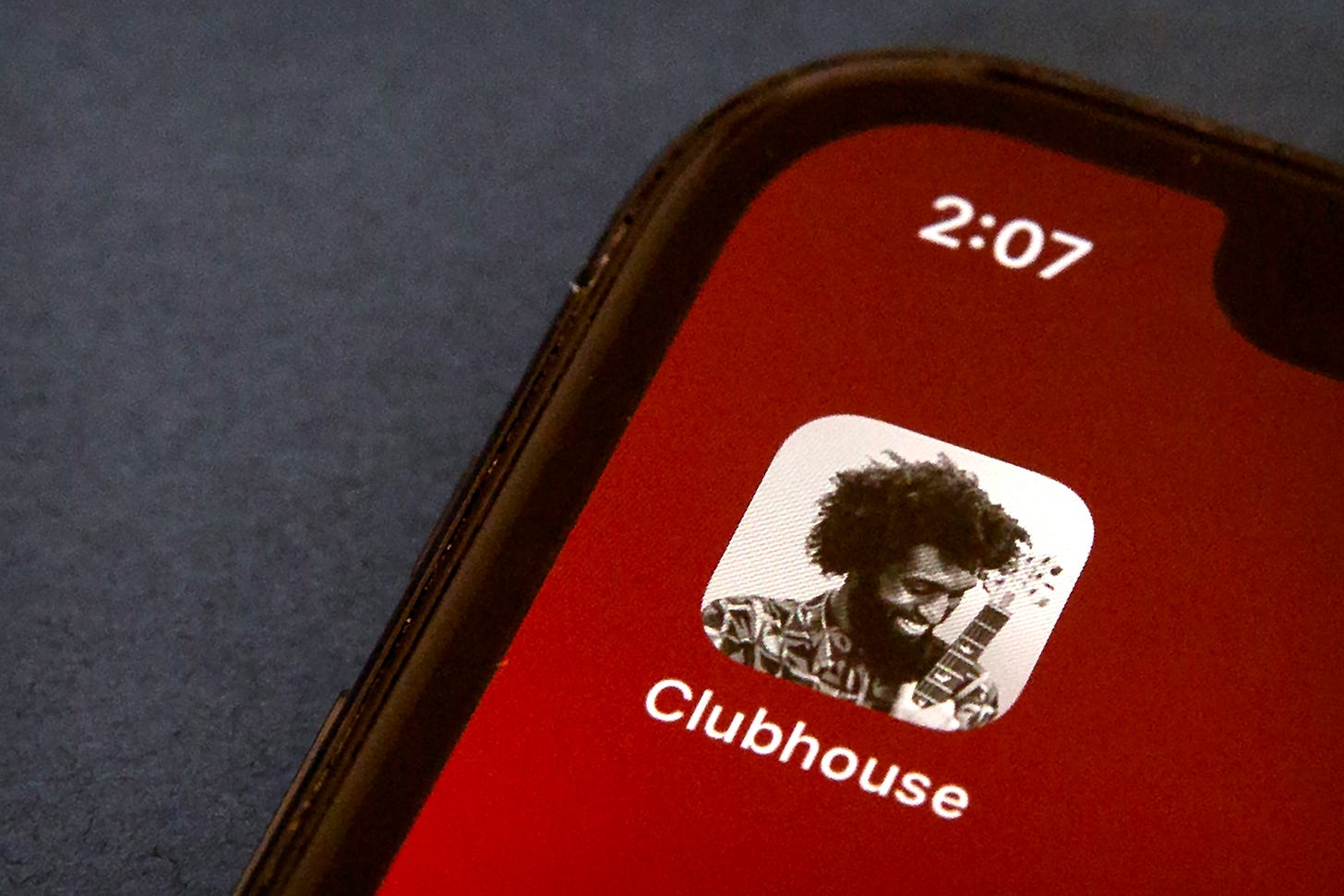Related highlights:
—
Clubhouse is a relatively new, audio-based social media platform designed specifically to protect the privacy of its users. It’s invite-only, it doesn’t maintain records, and it doesn’t allow for conversations to be recorded.
This drives some in the press insane — the fact that they cannot closely and easily monitor the platform’s members.
“With the myriad of other platforms fact-checkers are forced to contend with, would it be best for them to ignore Clubhouse for now?” Cristina Tardaguila writes for Poynter. “Facebook didn’t. According to The New York Times, it’s already building a product to compete with Clubhouse.”
“Neither did the Chinese government,” she adds.
Oh no.
Then comes the kicker (emphasis added): “On Monday, after a rare moment of cross-border dialogue between users from mainland China and others outside the country, Chinese censors moved in. If Xi Jinping’s administration isn’t ignoring Clubhouse, why should fact-checkers? Why should you?”
The Chinese Communist Party is not a model to emulate, especially if we’re talking about online speech and the free press.
There’s more in the article, including details about the author’s failed attempt to search out disinformation and propaganda on the increasingly popular platform whose users include even multimillionaire Elon Musk.
“As a fact-checker working during the pandemic,” she writes, “I was eager to see if popular misinformation tropes such as anti-vax content had already landed at Clubhouse. Even though the platform’s guidelines say clearly that users ‘may not spread false information,’ I thought I’d try to find some. So I joined a club called ‘All things Covid’ after typing ‘vaccines’ into the app’s search bar.”
She adds, “I jumped to a second club in my search for information about vaccines. … I moved on to search for mis/disinformation about politics.”
As it turns out, her experience was mostly positive. But even that isn’t good enough. Tardaguila is still disturbed that the group makes it difficult for members of the press to collect and store its users’ discussions.
“The lack of these features will surely produce barriers for fact-checkers,” she writes. “It will be not only hard to choose what club to join but Clubhouse also requires that fact-checkers listen to hours and hours of conversations before selecting what claims should be assessed.”
Unsurprisingly, Tardaguila is not the only journalist who sees it as a problem that Clubhouse makes it tough for journalists to track its hosted content. Indeed, it’s the hot new thing in journalism, tearing down the new social media platform (it launched in April 2020) because it guards its members' privacy.
The New York Times’s amoral tech reporter Taylor Lorenz, for example, created a burner account for the explicit purpose of spying on the group’s conversations. Funny enough, her effort to infiltrate the platform landed her in hot water recently when she falsely accused entrepreneur Marc Andreessen of using the word “retarded” in a derogatory sense.
“[Andreessen] just openly using the r-slur on Clubhouse tonight and not one other person in the room called him on it or saying anything,” Lorenz said in a since-deleted tweet that included a picture of the Clubhouse audio chat participants.
None of what she "reported" is true, by the way. Andreessen wasn’t even speaking when the word “retarded” was used. For that matter, the word was used in the context of quoting Reddit users. It wasn’t directed at anyone.
Then, there’s Olivia Smith, who warns on GritDaily that on Clubhouse, “there’s no path to accountability.”
She adds, in reference to its privacy features, “There is no way to prove that someone said anything controversial at all.”
This is also true of most things spoken in real life, in physical spaces that lack an audio recording device.
It is unclear when so many in the news business decided it is their job to role-play as characters from The Lives of Others, but that is where we apparently are today.




